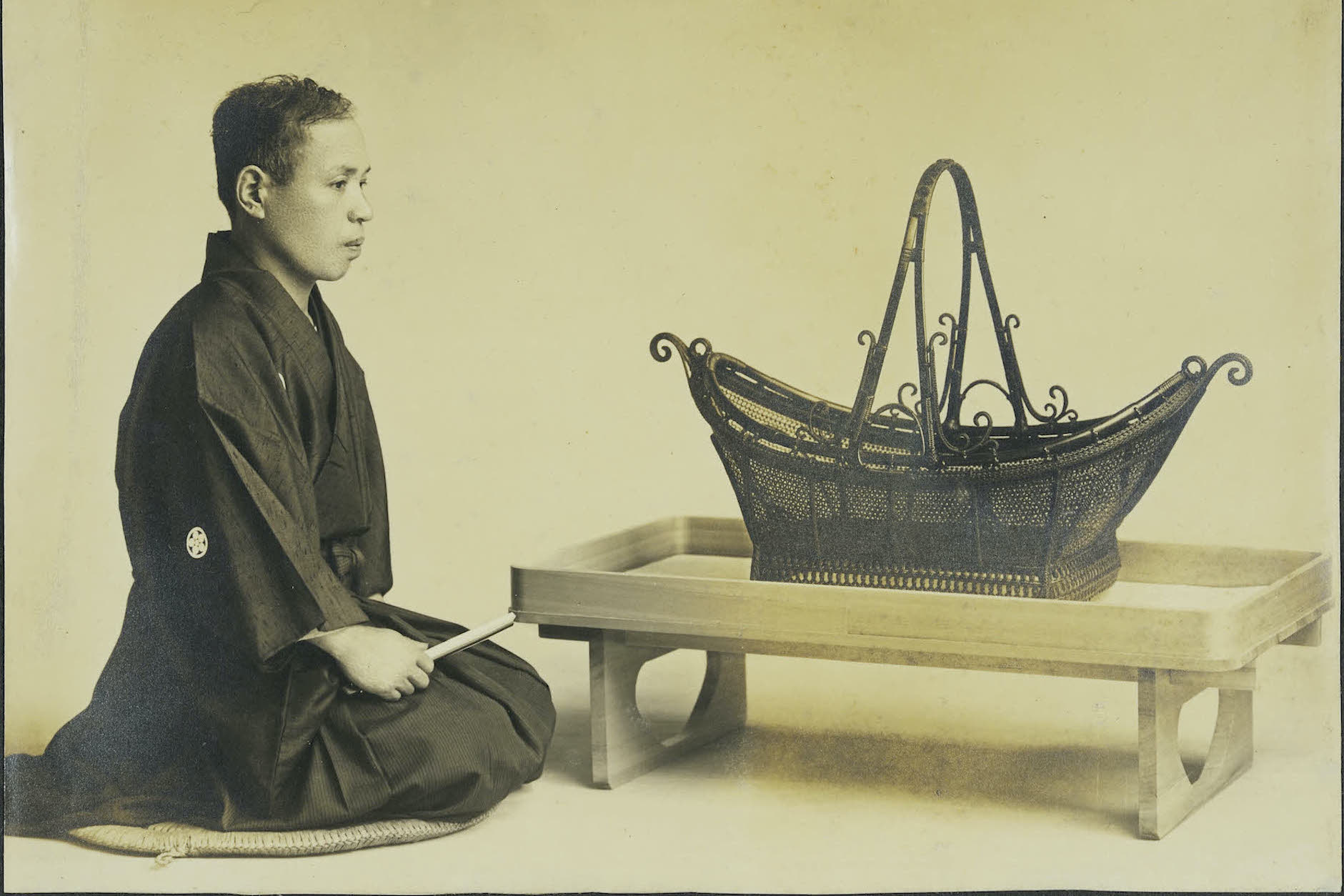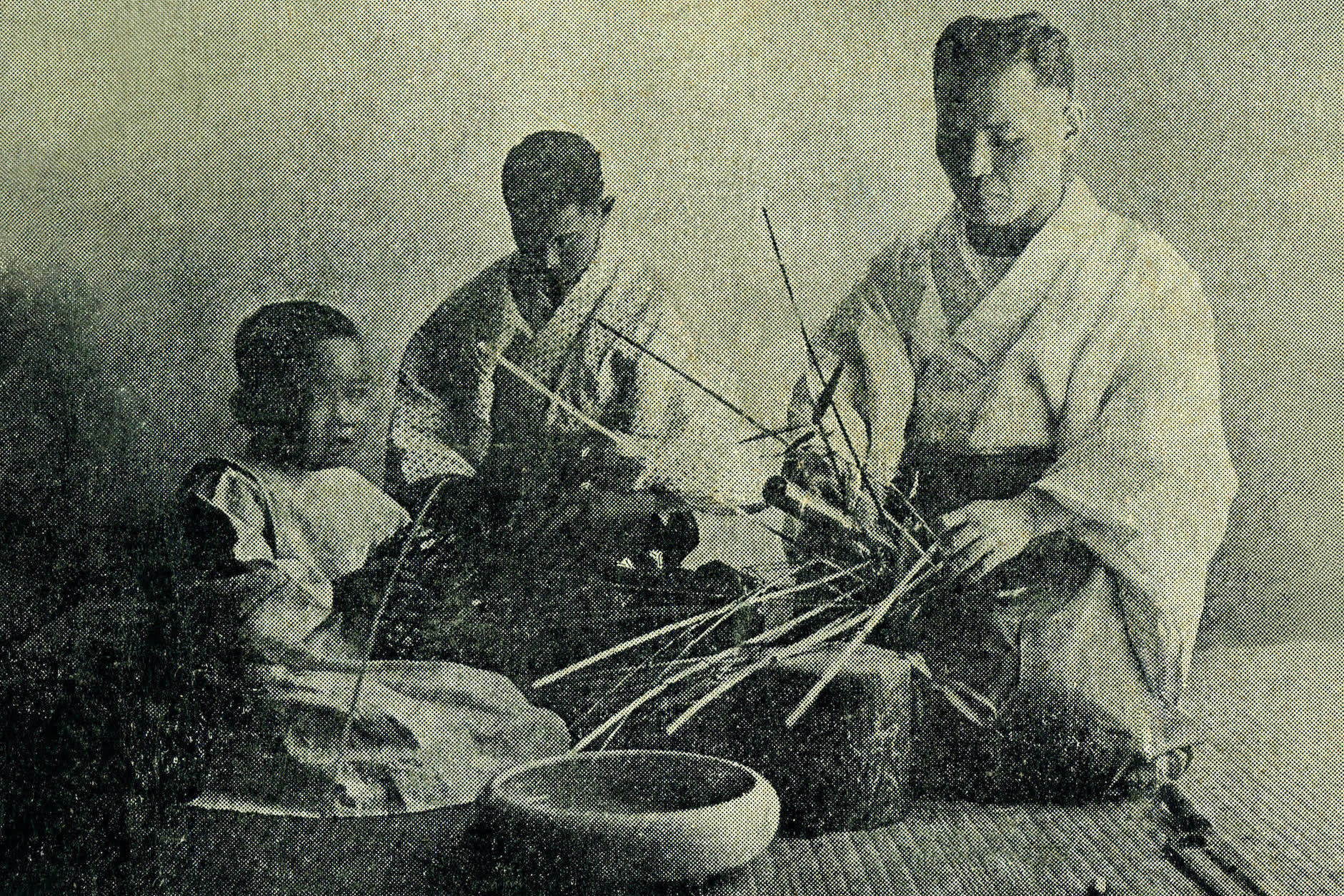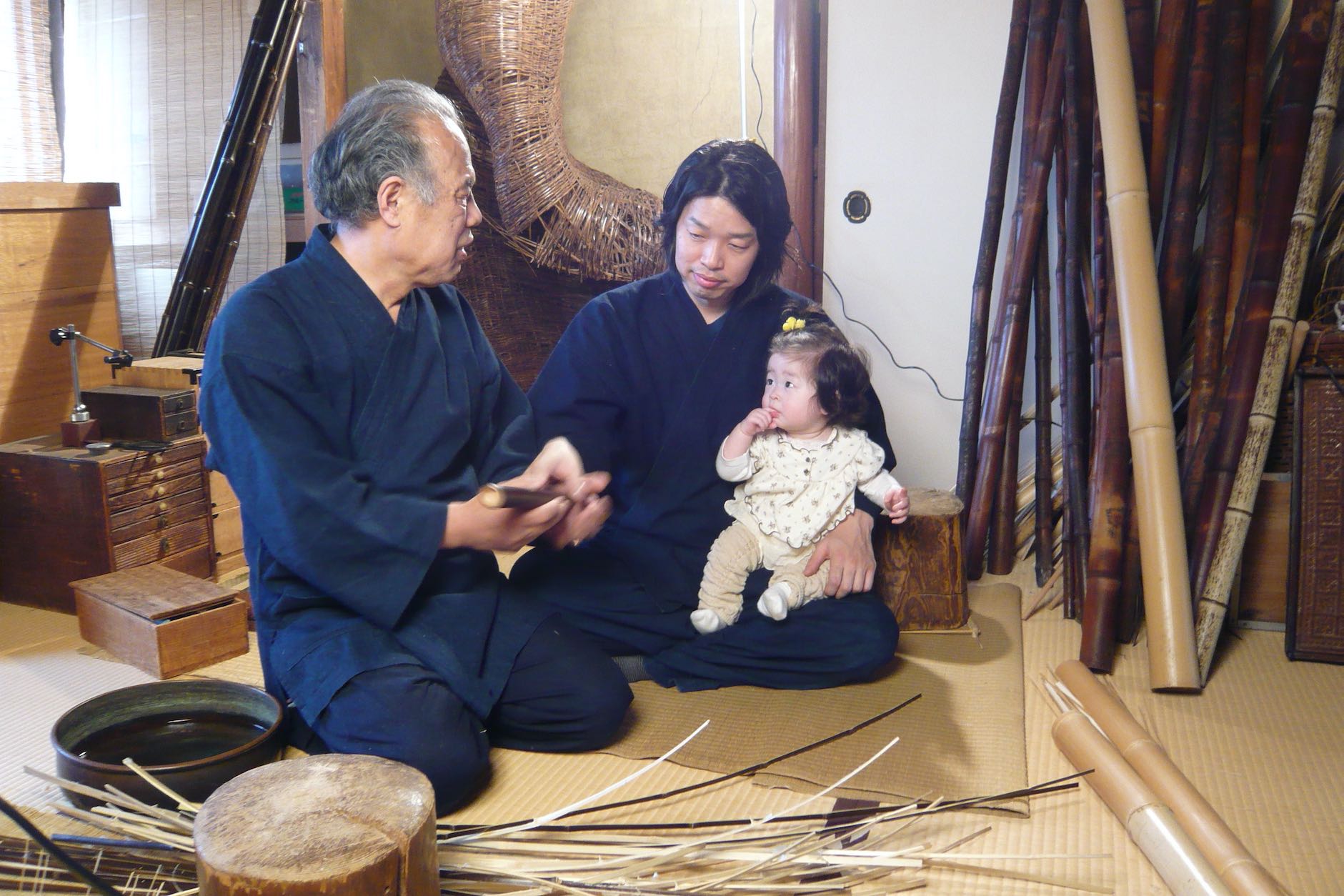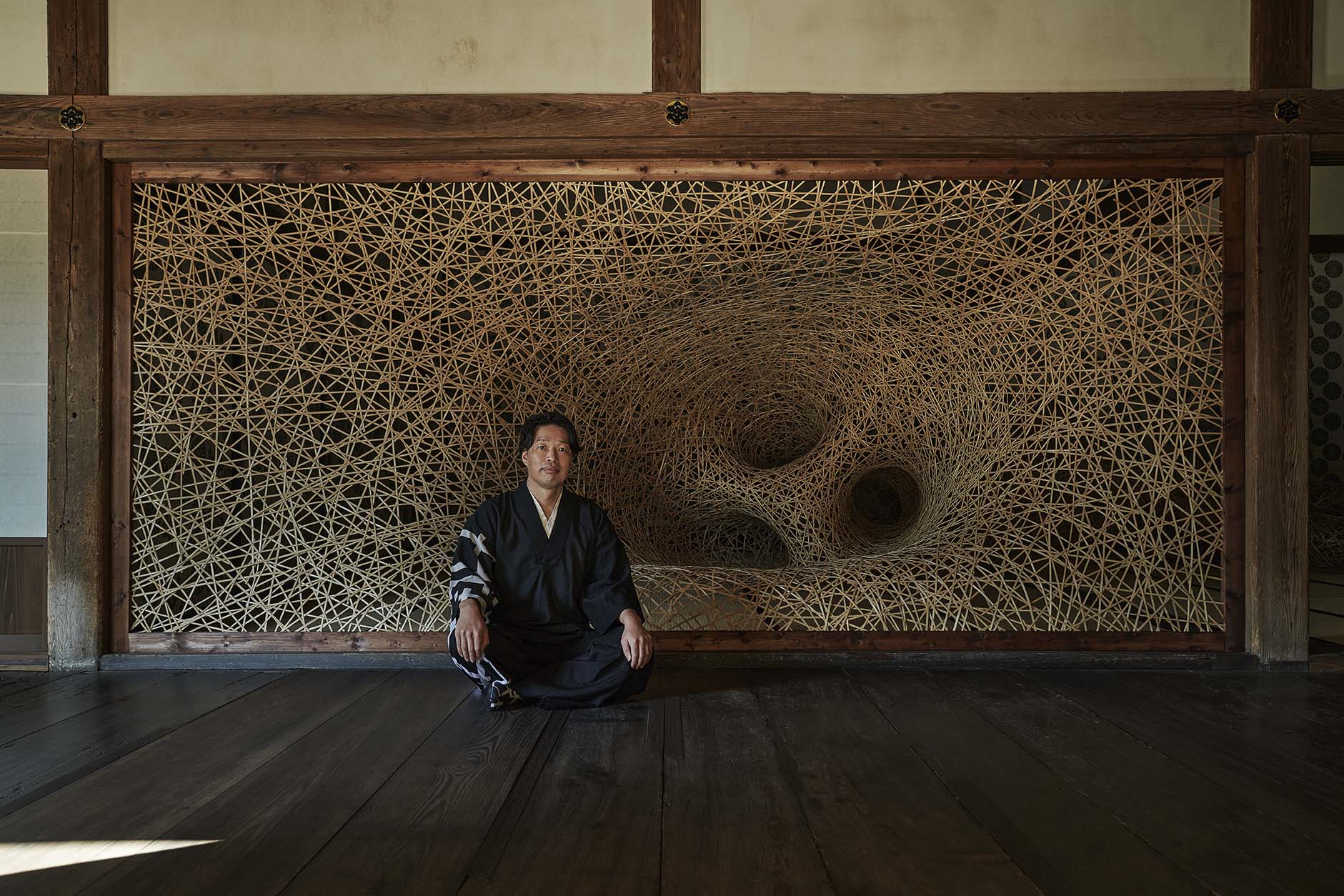Dates
07.28.2022 (Thu.) ― 01.15.2023 (Sun.)
Hours
Mon. – Fri. | 11:00 AM – 7:00 PM
Sat. – Sun. | 11:00 AM – 8:00 PM
Location
JAPAN HOUSE Gallery, Level 2
Fee
Free
A fourth-generation bamboo artist, Tanabe Chikuunsai IV (b. 1973) dramatically pushes the boundaries of the artform. While continuing his family’s tradition of weaving bamboo flower baskets and smaller sculptural works, he is also renowned for using bamboo as a material for large-scale contemporary artworks and installations at museums and other venues around the world. The exhibition LIFE CYCLES examines the Chikuunsai artistic lineage, Tanabe Chikuunsai IV’s creative process, and the life of Japan’s bamboo forests.
Born in Sakai in Osaka, Chikuunsai trained in sculpture at Tokyo University of the Arts. He then studied traditional Japanese basket weaving in Beppu in Oita prefecture and with his father, Tanabe Chikuunsai III. Keenly aware of artistic life cycles, Chikuunsai is passing down to his children the skills and knowledge he inherited from earlier generations. He is also conscious of the life of the bamboo he uses in his work. As he harvests bamboo from the woods of Kochi in Shikoku, he also strives to nurture and preserve the forests. For his site-specific installations, Chikuunsai previously used torachiku, or “tiger bamboo,” which has now become scarce. For this installation, he employed two other types of bamboo—madake (“Japanese timber bamboo”) and kurochiku (“black bamboo”), which is also disappearing. The exhibition highlights the importance of conserving the bamboo forests, or chikurin, for future generations.
As he weaves the bamboo strips, Chikuunsai reflects upon connections, or tsunagari, between humans and nature, present and past generations, and the cultures he brings together through his installations. When an exhibition closes, he dismantles each installation and saves the bamboo strips to use in his next work—creating a generational connection between his works, deliberately avoiding waste, and extending the bamboo’s life cycle.
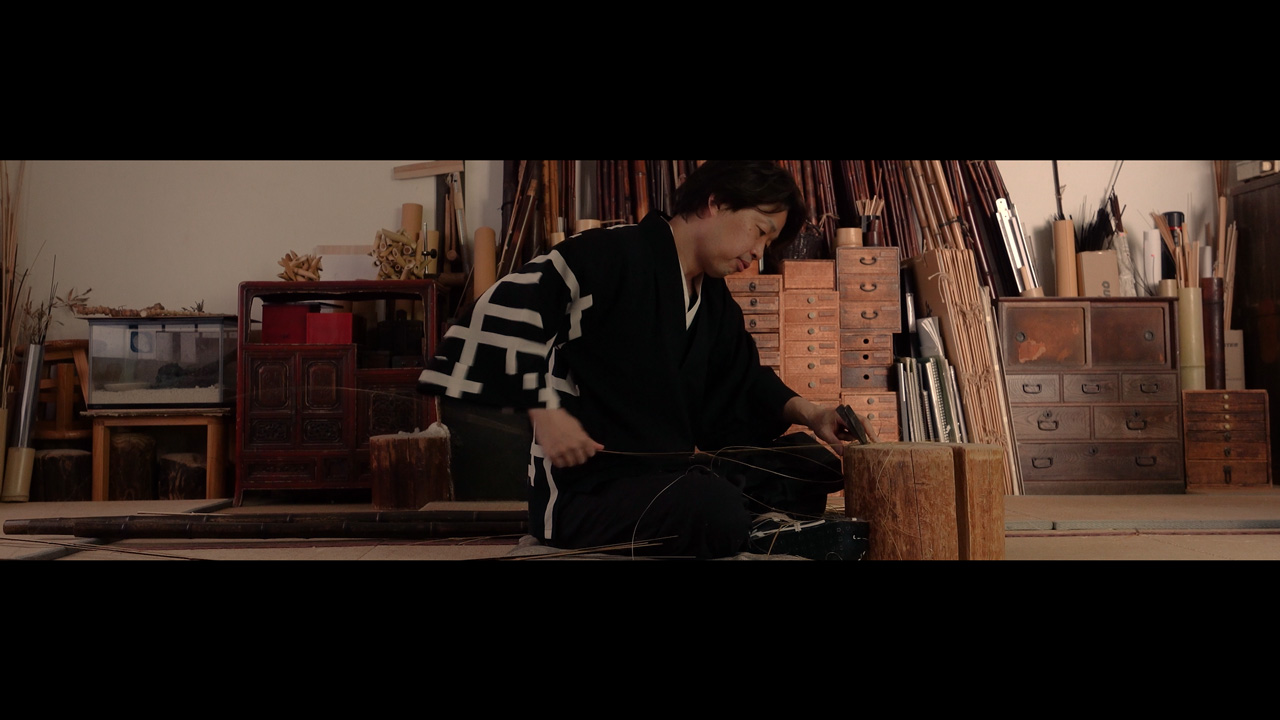
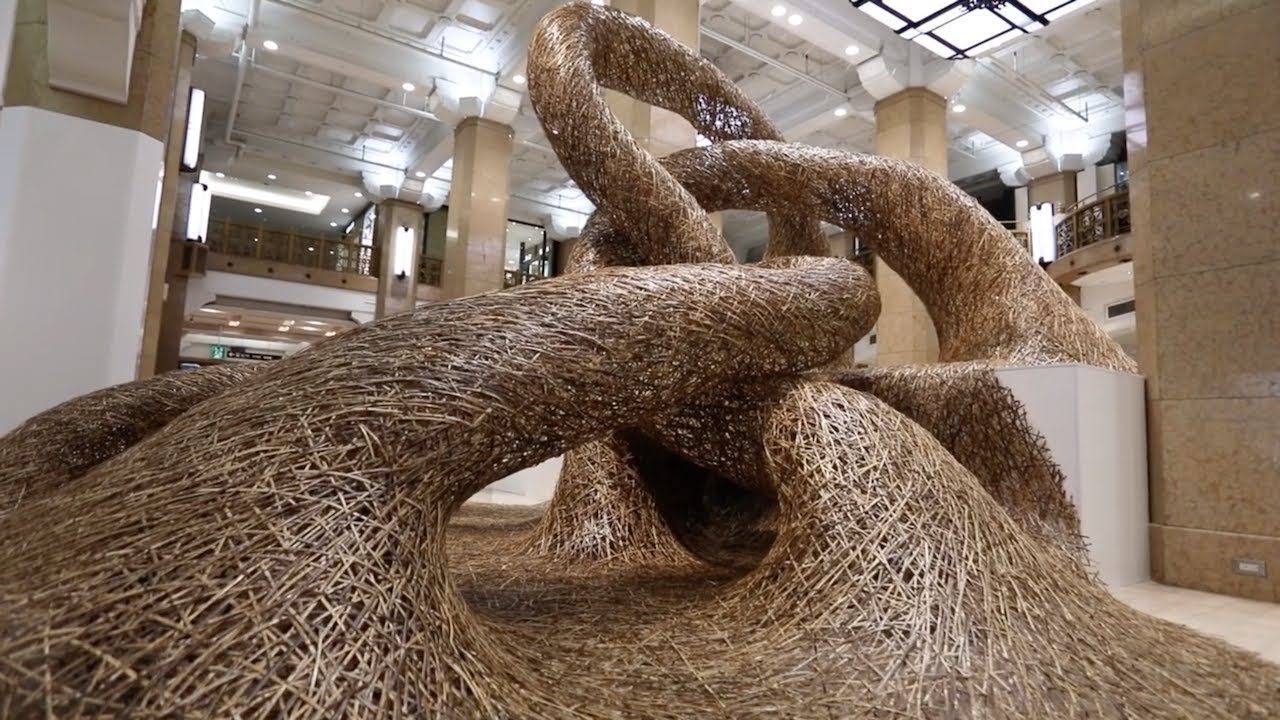
*To watch the video in full screen, please click play and then the YouTube icon on the lower right-hand corner.
Tanabe Chikuunsai IV Interview
*To view the flipbook in full screen, please click on the "Fullscreen" icon on the lower right-hand corner from the window above.
Introductory Exhibition
The LIFE CYCLES exhibition begins in the windows of the JAPAN HOUSE Los Angeles second-floor space with a large abstract bamboo sculpture and a small-scale installation, both powerful artworks that hint at the spectacular main installation inside. Upon entering the exhibition, visitors are introduced to the Tanabe Chikuunsai family lineage—four generations who have been weaving bamboo into works of artistic and cultural importance for a century. One bamboo basket from each of the three preceding generations and two works by Tanabe Chikuunsai IV demonstrate the evolution of bamboo basket weaving. This introductory section opens two weeks before the Main Gallery on July 13 allowing the public to observe the artist and his team creating the large, site-specific installation. (When the main installation is complete, a time-lapse video of its fabrication will be shown in the Sub-Gallery.)
Main Site-Specific Installation
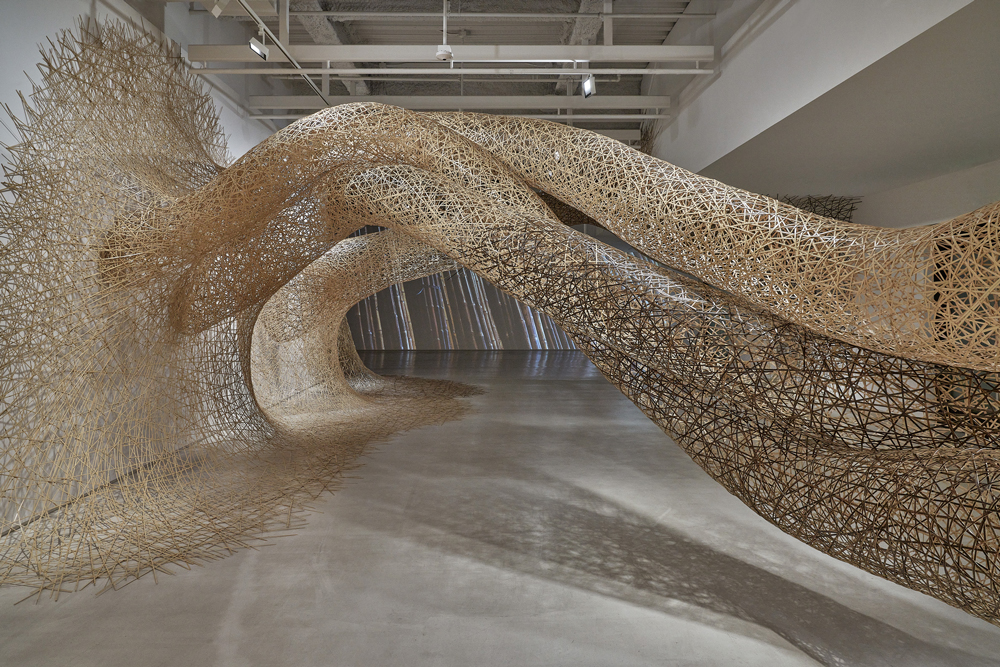
The Main Gallery features a large-scale, immersive bamboo installation by Tanabe Chikuunsai IV, made especially for the JAPAN HOUSE Los Angeles space. Constructed through weaving about ten thousand bamboo strips, it is held together with tension. The fluid, organic form winds and twists across the gallery, allowing visitors to approach and view it from multiple angles. The exhibition invites study and contemplation of the bamboo material, Chikuunsai’s technical artistry, and concepts of connectivity, continuity, and cycles that form the core of the artist’s work. A video projection of the bamboo forests, or chikurin, of Kochi prefecture in Shikoku, from which Chikuunsai has traditionally harvested bamboo, accompanies the installation. An artist statement and a video of Chikuunsai’s art-making process explain his efforts to preserve these bamboo forests for future generations.
Note: Traditionally, the Japanese family name comes first, followed by personal name or artist name.
The Tanabe Chikuunsai Lineage of Bamboo Artists
Tanabe Chikuunsai IV is the fourth in a lineage of bamboo artists based in the Kansai region of Japan, specifically the city of Sakai in Osaka prefecture. For many decades, the artists have woven strips of bamboo into elegant baskets used for flower arrangements, particularly for display during both the chanoyu tea ceremony (in which powdered and whipped matcha is served in bowls) and sencha tea practices (in which tea leaves are steeped in hot water and served in small cups).
As with many Japanese cultural traditions, skills and styles are passed down from one generation to the next. With artists, lineage names are also often passed on, as with Tanabe Chikuunsai IV. The lineage name is made up of the family name, Tanabe, and the art name, or gō, Chikuunsai, meaning “Bamboo Cloud Master.” Each generation of artist is given a personal name at birth, for example Takeo in the case of Tanabe Chikuunsai IV, then they work for a period of time with a junior artist name, such as Shōchiku. Upon the retirement or death of the artist’s father, they inherit the prestigious art name Chikuunsai, becoming Tanabe Chikuunsai, followed by a generational number.
Photo of Tanabe Chikuunsai IV by Minamoto Tadayuki
Explore Bamboo
*To view the flipbook in full screen, please click on the "Fullscreen" icon on the lower right-hand corner from the window above.
Gallery Photos
*To view the flipbook in full screen, please click on the "Fullscreen" icon on the lower right-hand corner from the window above.
Exhibition Brochure
The exhibition brochure is available for download.
Exhibition-Related Programs
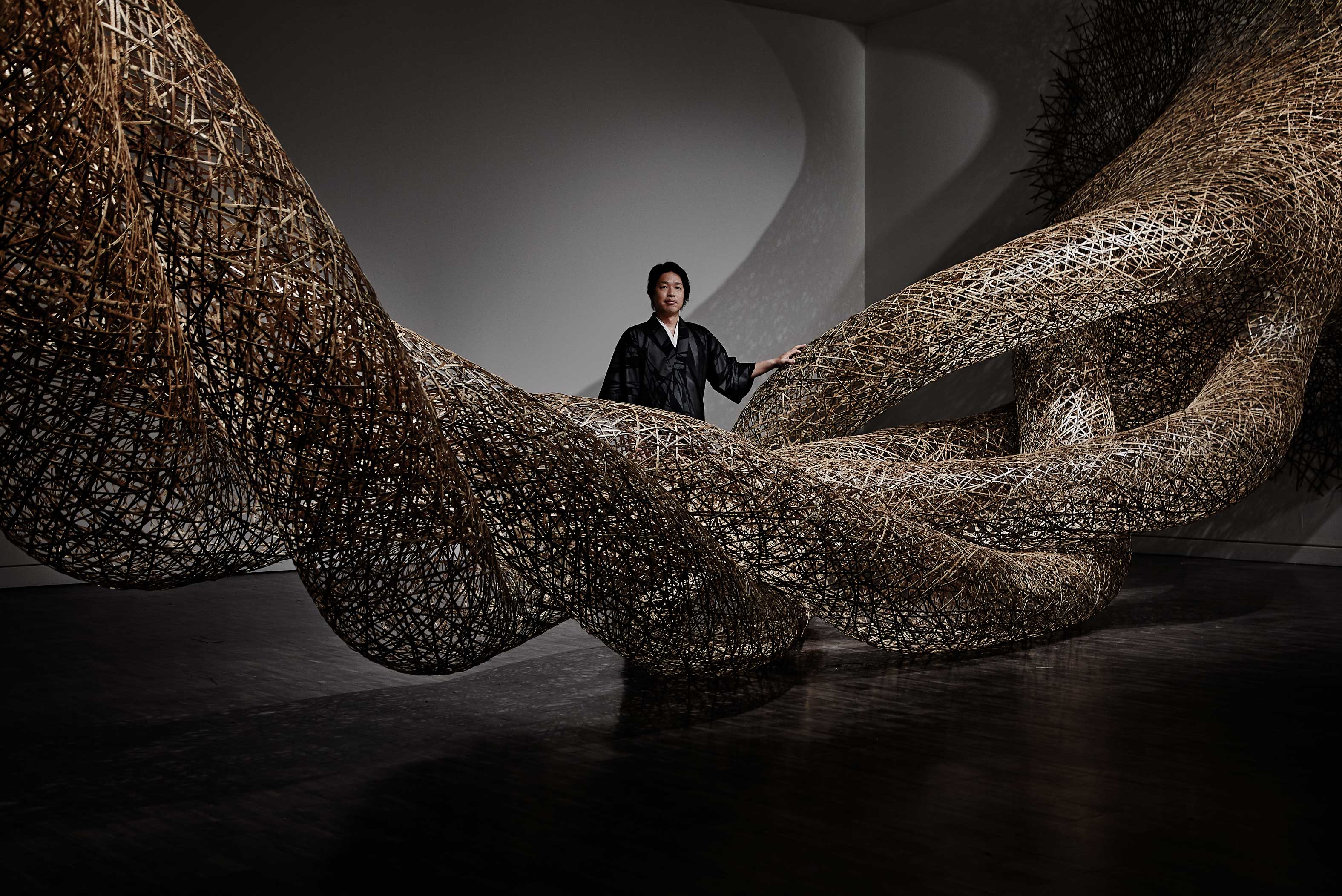 Photo by Minamoto Tadayuki
Photo by Minamoto Tadayuki
Date
07.28.2022 (Thu.)
Time
06:00 PM - 07:30 PM
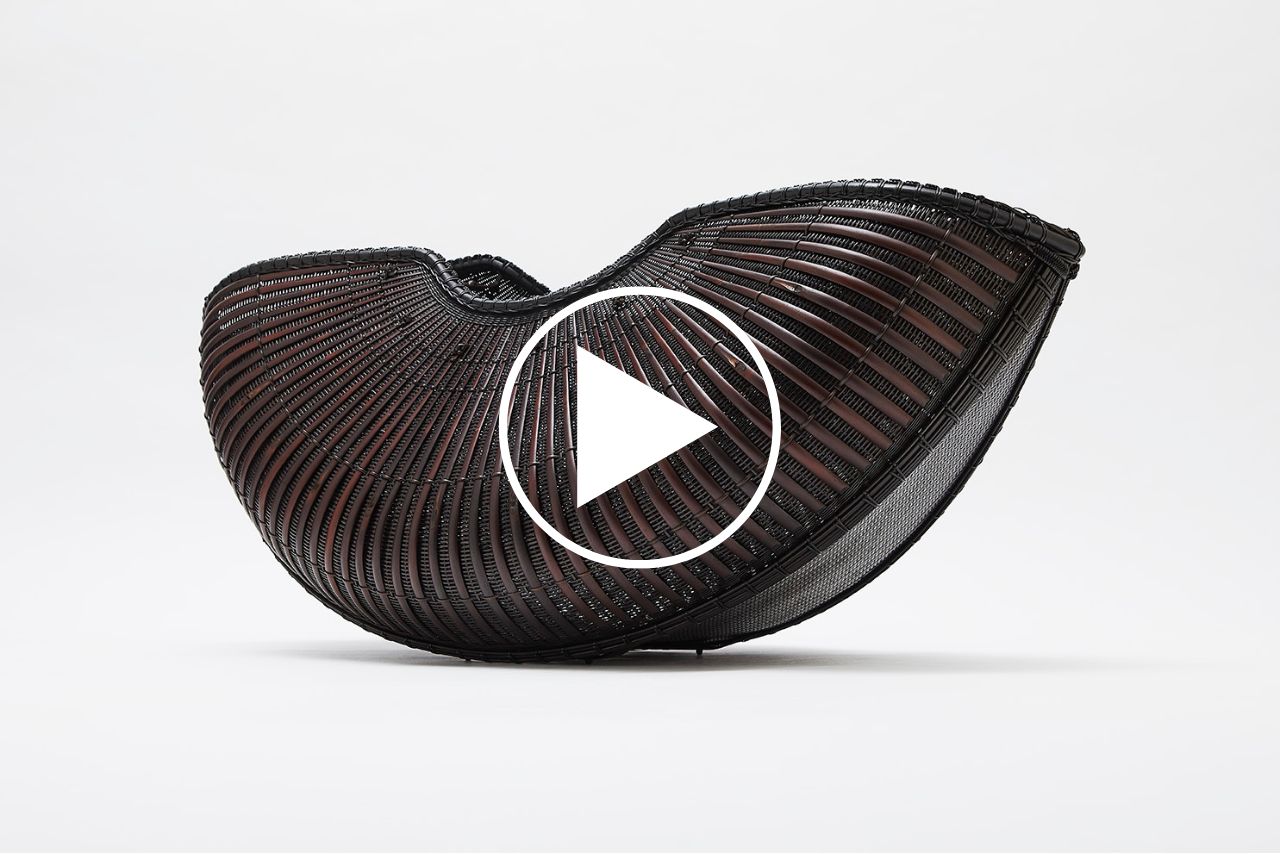 Photo by Minamoto Tadayuki
Photo by Minamoto Tadayuki
Date
08.16.2022 (Tue.)
Time
05:00 PM - 06:00 PM (PDT)
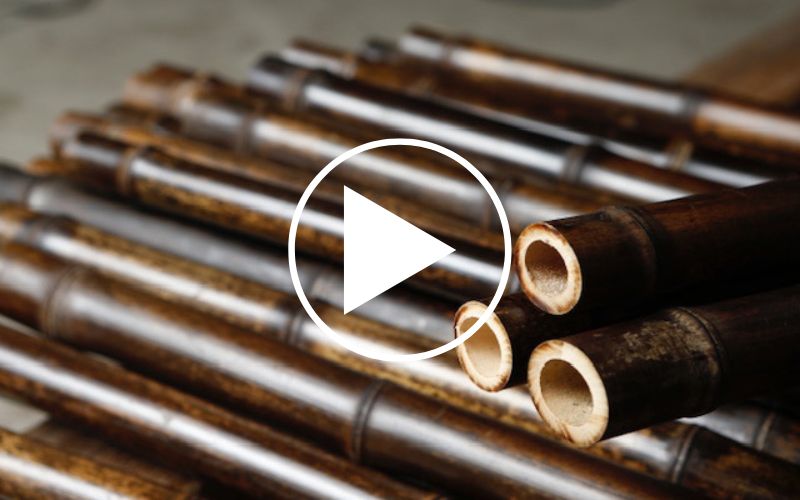 © Kanasaki Chikuzaiten
© Kanasaki Chikuzaiten
Date
11.02.2022 (Wed.)
Time
05:00 PM - 06:00 PM (PDT)
 Courtesy of Taketora
Courtesy of Taketora
Date
12.07.2022 (Wed.)
Time
05:00 PM - 06:00 PM (PST)
Reading Material
From Roots to Shoots: Bamboo as a Cultural Icon 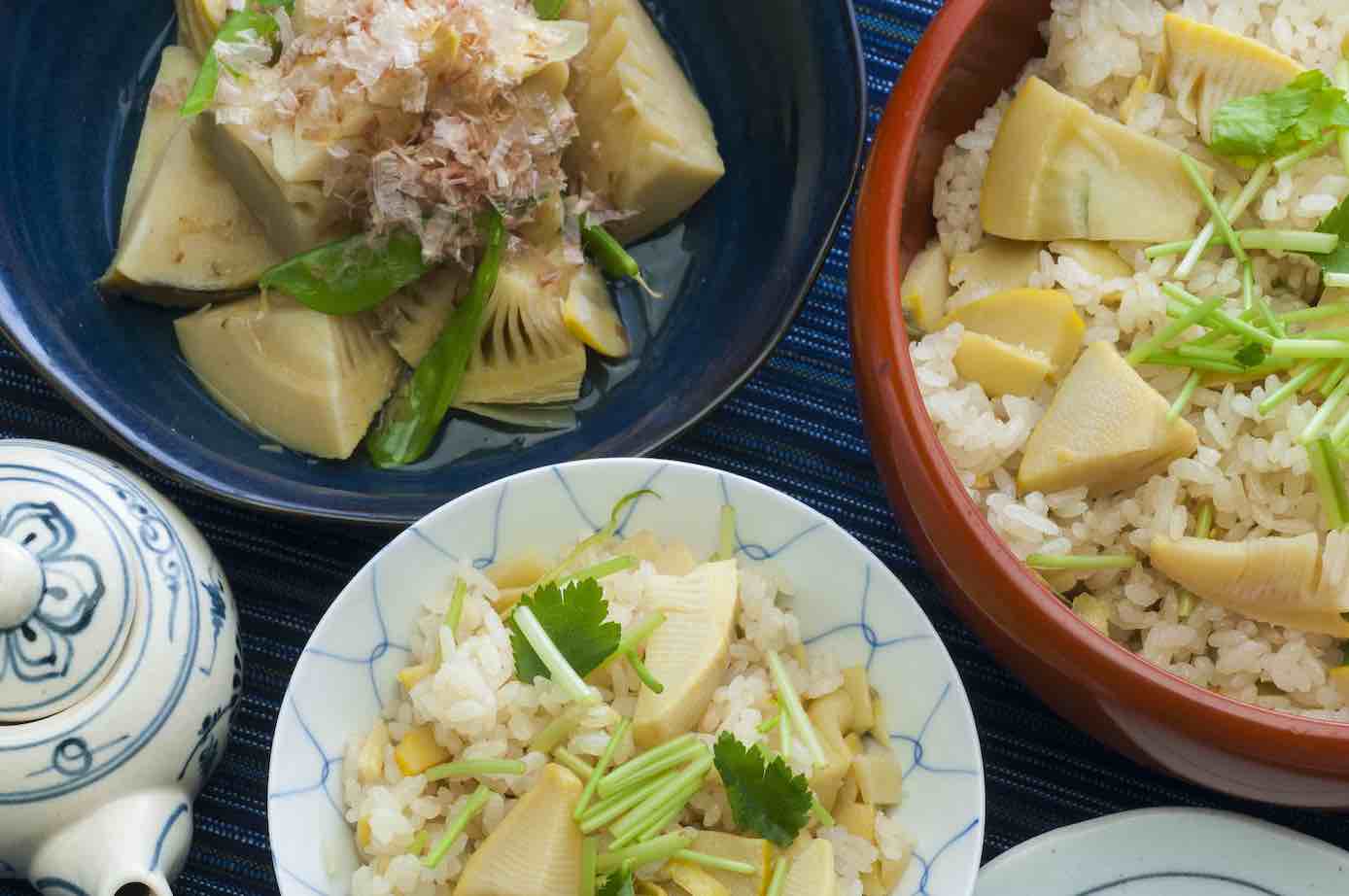
Weaving Sustainability: Bamboo Craft in Japanese Tradition 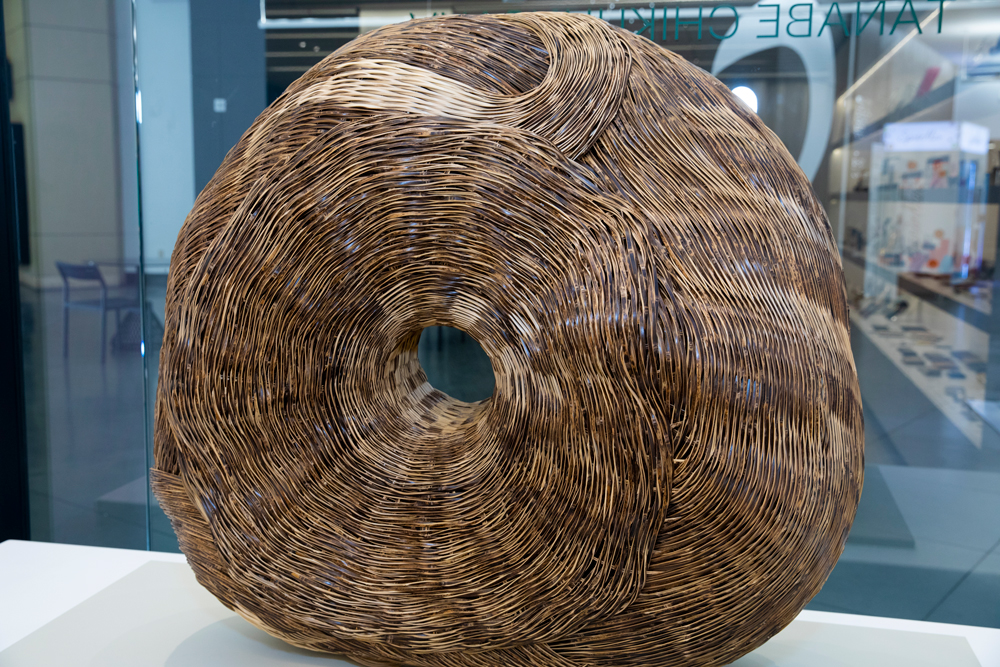
Exhibition Credits
Presented by | JAPAN HOUSE Los Angeles
Exhibition Production | Tanabe Chikuunsai IV
Chikuunsai IV Installation Assistants/Apprentices | Nakamura Emika, Hayashi Jumpei, Ichikawa Yona, Hamada Yoshiaki
Exhibition Photography and Video | Minamoto Tadayuki and Hashiguchi Akiko
Exhibition Support provided by | Yumekoubou, TAI Modern, Kanasaki Chikuzaiten, Yamagishi Chikuzaiten
Media Sponsors
.jpg)


